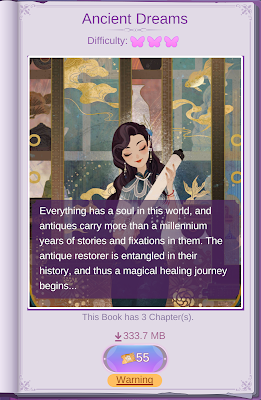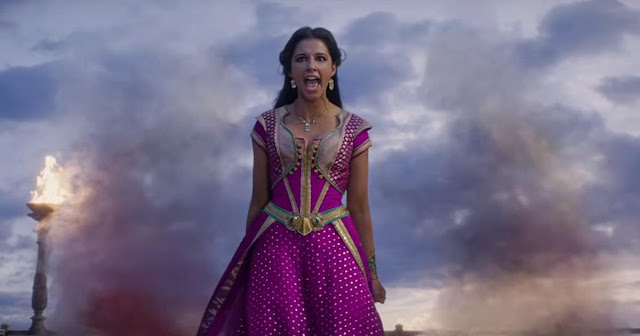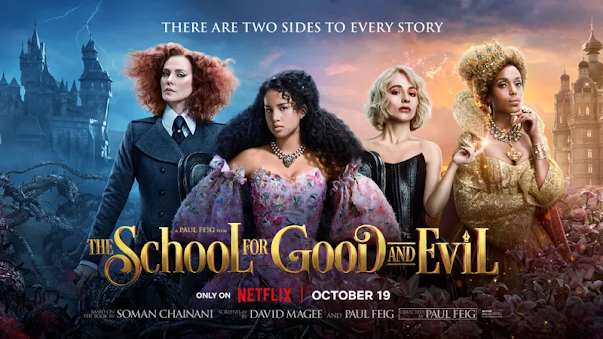Love Never Dies: A Tale of Two Musicals
This may seem like an unusual topic for my blog, but it felt appropriate after Andrew Lloyd Webber streamed The Phantom of the Opera for free last weekend followed by its sequel, Love Never Dies, this weekend as part of his The Shows Must Go On series. I had seen Phantom of the Opera twice on stage and watched this recording of Love Never Dies online when it was first released nearly a decade ago. I have strong feelings about both productions and how they demonstrate why making a sequel to a princess story is generally a bad idea. You might try to argue that Phantom is not a princess story, but Christine Daaé is just as much of a musical theater princess as Johanna is in Sweeney Todd. She is a feminine ingenue who is gifted with a beautiful singing voice and coveted for her kindness and gentility by all who are fortunate enough to know her. Phantom of the Opera is a beautiful allegory for love and obsession and the complex psychological effects of physical deformities. Love Never Dies is a forced rehash of the original story that lacks the depth, mystery, and passion in spite of the best efforts from Andrew Lloyd Webber and the talented lyricist Glenn Slater, who worked on the Broadway production of The Little Mermaid as well as the movie and series for Tangled.
The biggest flaw with Love Never Dies is that it addresses the fact that Christine has grown from a princess to a queen yet still forces her into the same situations from her past that she should have matured beyond. She doesn't learn anything from her experiences in Phantom of the Opera and makes the same poor decisions like Elsa does with Anna in Frozen 2. Many sequels dance around challenge this by giving the protagonist a child who must go through a similar experience to their parents and learn the same lessons like Melody in The Little Mermaid 2. Love Never Dies does give Christine a son named Gustave, but he is too young to end up in a love triangle like his mother, so the story reverts back to the washed relationship between Christine and the Phantom regardless. Another major issue with princess sequels is that most of them are based on fairy tales that end with "happily ever after," so the sequel must tear that happy ending away in order to remain interesting, much like the time travel storyline of Cinderella 3. The ending of the original Phantom of the Opera implied that Christine married Raoul and lived happily ever after, free at last from the Phantom's corruption. The sequel spoils all of that by turning Raoul into a drunken loser who is incapable of satiating Christine's love of music and backpedaling Christine's ambiguously torrid relationship with the Phantom by giving them a child.
What made The Phantom of the Opera so alluring was that few people were ever welcome into the Phantom's hidden world. When he seduces Christine into visiting his underground chambers, we see it through her eyes as a magical wonderland on a plane that exists somewhere in between fantasy and reality. The whimsical allure of his world is enhanced by the powerful vocals of the title song. In Love Never Dies, the Phantom stops living in the shadows an opens a freak show in Coney Island where he welcomes everyone who wishes to see people who look different from the societal norm. "The Beauty Underneath," which he sings to Gustave about his troupe of freaks, is by far the catchiest song in "Love Never Dies," but it feels entirely out of place with the rest of the music, whereas the song "The Phantom of the Opera" blends perfectly into the operatic style of the titular musical. Gustave is entranced at first by the Phantom's magical world, but Christine is already familiar with it. Therefore, the scene where she passes out upon seeing the Phantom in her dressing room again for the first time in ten years and then sings with him for roughly ten minutes about how he was from "Once Upon Another Time" is incredibly boring and lacks any of the mystery and intrigue of its predecessor.
Then there's Meg Giry. Even though I remembered the ending of Love Never Dies from when I watched it online years ago, I completely forgot Meg's involvement in the tragic resolution of the story. This adds an additional level of irony to her character arc of feeling ignored. Her forgettable nature is just as much the writers' fault for not giving her enough emotional solos as it is her own flaw for being too passive of a character in both musicals. Meg was a minor and forgettable character in the original Phantom of the Opera. In Love Never Dies, she was never given a song that truly depicts the jealousy that she went through when the Phantom continued to obsess over Christine years after she disappeared from his life. That's not a character flaw. That's a writing flaw. In order for the infuriating ending of Love Never Dies to at least make sense from a story standpoint, Meg would have needed to be a more prominent character throughout the course of the show, which would have been also been interesting than watching Christine stand next to the Phantom for ten minutes and sing about how he was an artifact of her past. Glenn Slater tweeted about an aria he wrote for Meg that got cut, which makes me wonder how it would have turned out if different decisions had been made throughout its conception.
To me, Love Never Dies is the perfect storm of why it's better to end a fairy tale with "happily ever after" than to try to force more drama into a completed story. The ambiguous ending of The Phantom of the Opera that allows the audience to decide what happened to the Phantom was just as poignant as it was satisfying. I think the best way to make a sequel is to focus on a different character who we don't know as much about and watch them overcome their own struggles in the new world created by their predecessors. That's why the trilogy that I'm currently writing features a different protagonist in each story. If Love Never Dies had been primarily about Meg with small cameos from Christine, it would have been a far more engaging musical with a thought-provoking ending that would have given the audience a better understanding of her actions. Then again, I don't think it's necessary at all to make a sequel to a long-running musical that people will continue to see for many years to come assuming we can ever go outside again.











Comments
First we have the movie that ends with Eugene saying after years of asking they got married. Then the short film about their wedding came out and after that the TV-show.
I personally don’t think a TV-show was planned from the very beginning but I’m very glad they took this chance, since technically Rapunzel’s classic Happily Ever After never happened in the movie. It was only spoken of.
Plus, you can do a lot more with a TV-show than a one and a half-hour long movie.